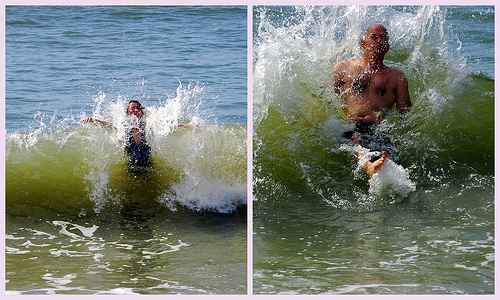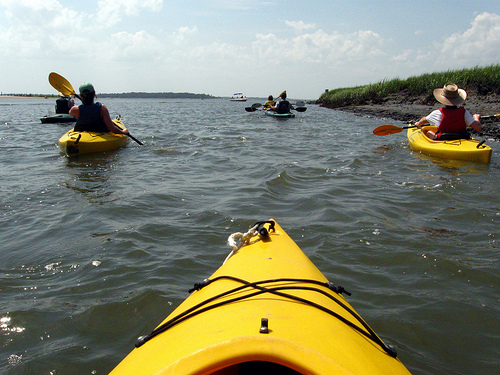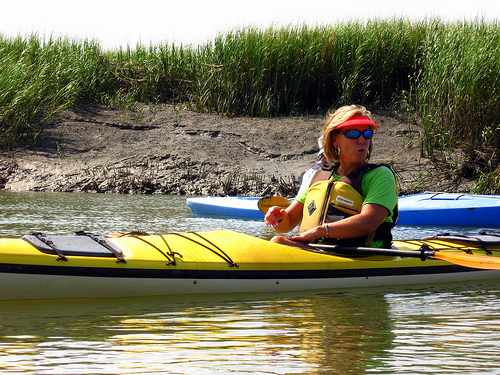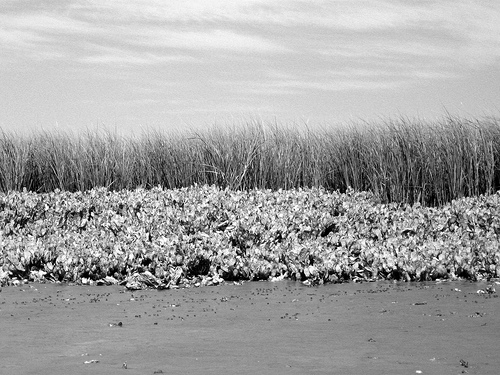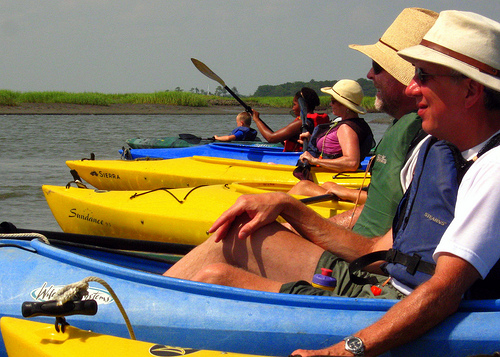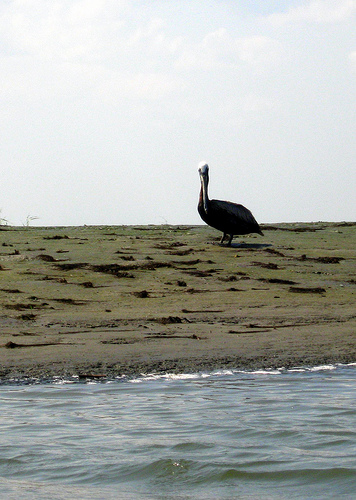Wednesday afternoon, Nana and Papa arrive for a short stay on their way down to visit friends in Florida. It’s lovely to see them, but just as lovely is the prospect of having sitters for the Girl.
The day begins as it usually does: breakfast and the beach. This time, L makes a friend. They dig in the sand together, build things together, destroy things together.
Then the girl heads to the water. We’re hopeful: maybe L will see her friend playing in the surf and think, “Hey, maybe I’ll give that a try.” Maybe, but not likely.
Still, with L occupied and Nana and Papa there to keep an eye on her, K and I do something we hadn’t done all week: go swimming together. Papa obliges our photo request and does a fine job.
The afternoon brings more babysitting — what to do? It’s not that we’re thrilled to be free of L, but we are. In a sense. Every time we’re without her, the same things happen: a strange sense of freedom from obligation followed very quickly by a quirky little tinge of emptiness.
Before the tinge sets in, we get in kayaks for a quick tour of the marshlands.
It has been over ten years — closer to fifteen — since I’ve been in a kayak, but I still keep my arm straight by my side when the guide asks, “Who has little to no experience in a kayak?” Surely it’s like riding a bike. What’s there to worry about? The greatest danger in a paid tour would be raising my paddle too high, dripping water onto my lap.
We set off, and sure enough, K and I are pros.
Lindsey, our guide, stops frequently to explain the flora and fauna about us.
“How many think that’s mud on the banks?” she asks. Some of us would probably raise our hands if we weren’t so busy paddling. Lindsey explains that it is, in fact, hundreds of years of decayed marsh grass (I can’t recall the name of the grass). It’s also floating about in the water, and this is the primary component of the mussels’ diet.
A couple of times, Lindsey has us back our canoes into the bank while she discusses the environment in detail, and answers questions.
The pressing question: Alligators? Generally, none in the marshes — they stick to fresh water and keep themselves as far away from humans as possible.
It’s from Lindsey that we learn about pelicans’ potential for eye damage due to diving for fish.
As with the spider wasp, that lays its eggs in a paralyzed, still active spider so that its young can feast on the still-living spider, it strikes me as a particularly cruel twist.

